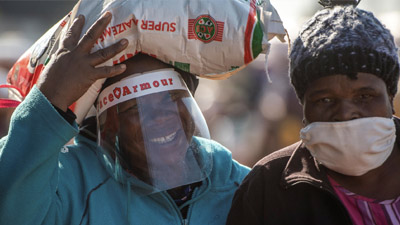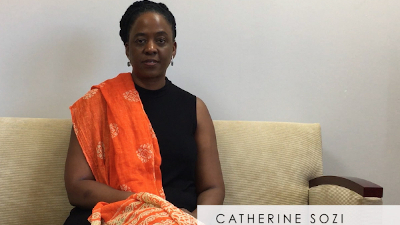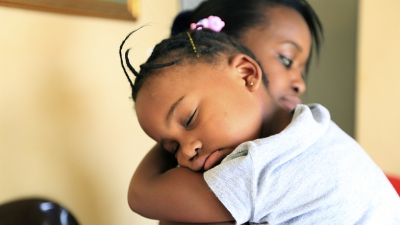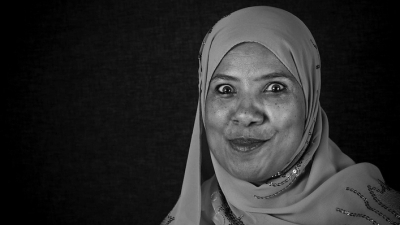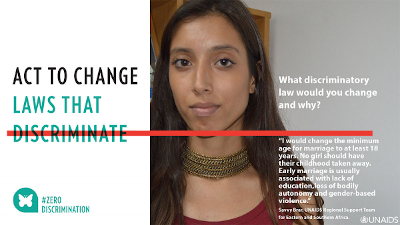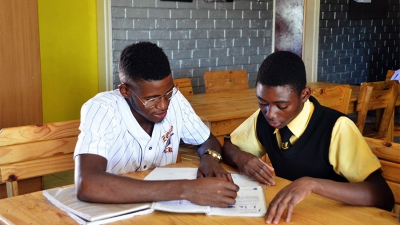Facebook Live: How do we shape the next 365 days?
On 10 December 2019, International Human Rights Day and the final day of 16 Days of Activism against violence against women and children, which runs from 25 November to 10 December every year, UNAIDS Regional Support Team for Eastern and Southern Africa, held a Facebook Live discussion.
Facilitator: Pontsho Pilane, Acting News Editor, Health-e News
Panel: Lineo Tsikoane, Director, Nairasha Legal Support, Lesotho
Otilia Chinyani Liachinyani, SGBV Coordinator, Katswe Sistahood, Zimbabwe
Sibusiso Mkwananzi, Demographer, Researcher and Lecturer, Wits University, South Africa
Title: As we commemorate International Human Rights Day and the end of 16 Days of Activism against Gender-Based Violence we ask: “How do we shape the next 365 days?”
Discussion:
What role does 16 Days of Activism play in creating awareness of gender-based violence?
SM: In South Africa, a lot of the work was riding on the wave of the national shutdown that happened in 2018 when women decided to march against gender-based violence. We have seen several cases where GBV has been put in the spotlight. Women are tired, enough is enough and there seems to be momentum. Emergency plans must has come out.
OCL:16 Days has brought the community together. We can talk about issues of sexual and reproductive health and rights that are not really talked about, or how traditional leaders have been responding to rape. The men were there… one of the things we have been talking about as a women’s movement is what role they play as perpetrators.
LT: 16 Days raises issues around how collectively society can impact on GBV; how we value women, children and gender-non-conforming people.
What are the immediate actions that people can take on an individual and collective basis?
SM: We need more frank conversations—in communities and in churches. We need survivors speaking about their experiences. We need to take these conversations back to our spaces. GBV is committed by individuals, but there are so many community level and structural issues that impact on it. It is important to start addressing those structural issues.
South Africa is very violent. There is structural violence in our workspaces, for instance. People will act out and respond to the violence to which they are exposed. To start addressing the pain and the hurt that has happened at a societal level, we need national healing of the past.
What are the practical things we can do to confront our own views about women and the role of men?
LT: Toxic masculinity affects not only women, but also men. We need a whole conversation about decolonization—who were we at the first instance, who are we now, and how are we presenting ourselves into the next decade. This must be based on the truths of what we can change. For example, am I willing to denounce aspects of my culture, aspects that contribute to the commodification of women? We must be intentional about how we have these conversations.
OCL: As women we blame ourselves for the violence that is done onto us. We need to unlearn the things that we have been taught. What immediate actions can people start doing… small little actions? For instance, how women get harassed on the street, what is happening next door. We need to give support when the violence is happening.
SM: For the longest time there has been too much silence. When survivors talk about their experiences there is still too much blame. We need to start assisting survivors and check how we react when GBV survivors come out. We need to stop the silence and give people the benefit of the doubt. We must show up and give support. What happens in private reflects what happens in public.
OCL: Zimbabwe has a good policy as much as there are gaps here and there. Our law is clear, but it is the implementation of those laws that is the problem. The justice system is not prompt. It starts with the individual… police have been socialized in such a way that they revictimize survivors. We need to sensitize police on their values. We are over an 90% Christian country, but our “Christian” values prevent us from not offering services to certain people. We need to address harmful social norms. A victim must walk more than 10km to get to a police station, so we need to address the accessibility and availability of certain services.
Our law makers, our judges, our health care workers—their values matter in terms of how survivors access services. Access to justice also means access to health care services.
When we look at 16 Days of Activism… was it worth it?
OCL: I do think it is worth it. We got everyone on board around the theme, which was speak against rape. It brings communities together, but there is still a lot of work to do.
SM: This 16 Days, more than before, has ensured that stakeholders take this more seriously and start putting together plans for GBV. Some of us working in the space will continue the work. It doesn’t end. We will keep doing the research, the dispelling of toxic masculinity, and the education.
LT: For a country that has 86% of women who have interfaced with violence, we are not doing half as much as we should be doing. Most houses are not fenced, which means as a society we will not tolerate robbery and burglary. But we have decided we will tolerate GBV. How can we choose differently as a society? We need to be bold enough to ask ourselves hard questions and take our words into actions. I am a bit frustrated, but hopeful. My biggest frustration is the light sentences that we give to perpetrators.
SM: In South Africa, 20–40% of women have experienced GBV in one way or another and just under 50% of women have experienced emotional or verbal abuse. GBV increases risk of HIV, unintended pregnancies, and lack of access to family planning.
What will we do for the next 365 days?
SM: In my space and the work that I do, I will continue to do research and look at the numbers—what is happening over time. There are very few data sources for GBV. I am hoping that the National Strategic Plan for GBV will be resourced. I am trying to juxtapose individual factors with contextual factors; at as many community-level structures as possible.
OCL: I will continue to do what I do, which is documenting the experience of women, creating safe spaces for women and girls, breaking the silence around the culture of violence, and advocacy.
LT: I will invest time in engaging communities, talking to women and girls, gender-non-conforming people and men in Lesotho and how they view rape. I would like to be useful to the Government of Lesotho to assist them to have a complete and comprehensive law on GBV. I will be that one person who refuses to be silent.
PP: Health-e will continue writing the stories of GBV; continue to give voice to the survivors to start addressing the pain and the hurt that has happened at a a societal level. As Sibusiso said, we need national healing.

